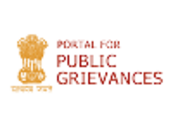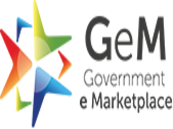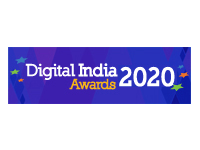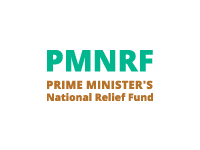
Vol 21 No 3 & 4 September & December 2002
National seminar on information access
The CHMK Library and Department of Library and Information Science, University of Calicut together organized a national seminar on `Information Access, Management and Exchange in the Technological Age' during 28-29 May 2002. The Seminar was sponsored by the Library Endowment, University of Calicut.
- Reproduced from Tech News 2002; 13(1-2):2
Aerospace Information Panel Meet
The Central Library of IIT Madras organized 22nd Aerospace Information Panel, AR&DB Meet during 25-26 June, 2002 at IIT Madras. Prof M S Ananth, Director, addressed the panel members and released the full-text CD-ROM database of PhD theses in the area of aerospace engineering. This project was completed under the guidance of Dr Harish Chandra, Principal Investigator with the financial assistance provided by AIP-AR&DB, Ministry of Defence, Government of India. Prof S Narayanan, Dean, Academic Research also addressed the meeting. The Panel also discussed the new project proposals received for providing funds, projects completed and projects in hand.
- Reported by Dr Harish Chandra, Librarian, IIT, Madras
12th Library Conference, Rajasthan Library Association, Jodhpur
The Conference was organized at Dr Raheja Library, Central Arid Zone Research Institute, Jodhpur during 10-11 August 2002. The theme of the conference was "Challenges of Information Technology before Libraries".
In all nine papers were presented during the two days' technical sessions. The papers were devoted to bar code technology/K Pareek; librarians' attitude to new technology/PM Sharma; information technology/DV Kothari and K Detha; cyber books/RK Dave and KK Sharma; CD-ROM technology and networking/D Singh; challenges of IT before libraries/ SD Vyas; information technology policy for Rajasthan/ KN Vyas; and importance of IT in libraries/ DC Ojha and T Das. The technical sessions were chaired by Dr R S Rathore, In-charge, Library and Information Unit, Defence Laboratory, Jodhpur. Shri Prem Pareek and Shri Vijendra Karnawat acted as rapporteurs.
- Reported by Tirth Das, Organising Secretary
Dr Ranganathan's birth anniversary celebration, Lucknow
The 111th birth anniversary was celebrated at National Botanical Research Institute (NBRI), Lucknow on 12th August 2002. Earlier Dr S P Singh, Scientist welcomed and introduced the chief guest, Prof Dr Roshan Lal Raina, Head, Library, IIM Lucknow. He said, "Dr Ranganathan's contribution for the profession are Five Laws of Library Science; Colon Classification, cataloguing theory, chain procedure, documentation." Dr Tuli, Director, NBRI presided over the function. He spoke, "Library should be automated to cope up with the present IT era. Then scientists will do advanced study in the field of science with the help of library." Programme was conducted by Mr M L Kain, Technical Officer and Mr Yogendra Nath proposed vote of thanks.
- Reported by H V Mote, Library Officer, NBRI.
Training Programme
The Central Library, IIT Madras organized during 18th-20th September 2002 training programme on `Emerging Technologies for Effective Management of Library Services' for LIS professionals in collaboration with DELNET, New Delhi. Prof M S Ananth, Director, IIT Madras inaugurated the Programme. Prof S Narayanan, Dean, Academic Research addressed the valedictory function and distributed the certificates to the participants.
- Reported by Dr Harish Chandra, Librarian, IIT Madras.
Workshop on e-learning
Centre for Development of Advanced Computing (C-DAC), Hyderabad in association with Ministry of Communication and Information Technology, Government of India, New Delhi, organized two workshops - each of one-week duration; e-learning through Web technologies from 8th to 12th July 2002; and XML in e-learning from 5th to 9th August 2002.
- Reproduced from Tech News 2002; 13(3): 4
Seminar on knowledge corporation
The seminar titled `India - The Knowledge Corporation: Uncommon Sense for Uncertain Times' by QAI India and Economictimes.com at Mumbai, Delhi and Bangalore on 17 October 2002. This was the first of a series of seminars the organizers plan to organize, with focus on making India the knowledge hub of the world. The seminar focused on `Knowledge and Innovation' and addressed the following issues: Growth areas in the knowledge industry; India's competencies in the industry; the services that provide the highest value; the key players; and the success stories. The Bangalore seminar was supported by several agencies including IIITB, Touchtel, Airtel, and IIMB. More details of the seminar series, including some of the presentations, are available on the QAI site (http://www.qaiindia.com)
It had theme oriented technical sessions and panel discussions. Speakers included CEOs and senior managers from companies such as Nasdaq, e4e Labs, Ernst & Young, Mindtree, DaimlerChrysler Research Center, iFlex Solutions, IIMB, etc.
Key presentations, observations and points made during the seminar are summarised below.
Mr. Baligar, Commissioner of Public Instructions, Karnataka delivered the keynote address. Apart from mentioning various knowledge and IT-based initiatives the state govt. has already taken (e.g. Bhoomi, yuva.com, Maratavahini, Mahithisindhu, computerization of electricity and water bill payment, etc.) he discussed several areas where vast opportunity exists e.g. affordable h/w, user friendly software in the local language, and affordable power supply. One of the areas of great opportunity is in making wider availability of learning material (e-learning) through IT in local language with local context in CD-ROM and also in distance education mode. He also spoke about `self-contained mobile IT laboratories' that can go around non-urban areas for bringing IT-awareness.
Mr. Ghanshyam Dass, Director, Nasdaq, S. Asia, spoke about what is expected of Indian IT industry, its current growth, challenges and opportunities. Among several opportunity areas, `remote education delivery' is an important one. He pointed out that there were hardly six IT companies in 1979, now there are about 3,500 companies whose core business is IT/software. A good part of these is in Bangalore. It seems a new IT/ software company/ MNC branch opens in Bangalore every other week!. There are 6 million PCs today and about 10 million Internet users in India. There is about 8,000 MB of international network connectivity from India, which is not enough, according to Dass.
Mr. Srikant Nagraj from Ernst & Young spoke about how knowledge management (KM) works in his company. Their KM system spreads across several thousand employees located in their offices all over the world. He spoke about their interest in going beyond knowledge to capture `expertise' He defined data as unformed representations; information as messages; knowledge as body of information resident within an individual; and expertise as knowledge applied to a bounded subject. Stages in their KM implementation are: identify (what knowledge is worth capturing), locate (where it is resident), capture (get hold of it), organize and apply. Their KM framework comprises strategy, relationships, people, processes, technology, and content. He spoke of `expert packs' made available on their KM system i.e. resources they create to organize knowledge captured from their experts. It is understood that they have a few information science professionals in their KM team.
A very interesting presentation on `Connecting IPs for a winning tech business` was given by Dr. Sridhar Mitta, CEO of e4e Labs, Bangalore (formerly head of Wipro R&D). (Note: IP is intellectual property). Most knowledge (read: software) based industry today is either service or product-based. Indian software companies are mostly into service, not into software product development.. Though India has the best software development talent, most of it is devoted to serving specific customers. But the service sector does not yield large revenues because it is customer-specific and does not multiply - it is a 1-to-1 (produce one, sell one) model. Investment is less, profit is also not great. In product development, investment is huge, profit in proportionately higher since it is 1-to-n (produce one, sell many) model. But Indian companies do not get into product development because they are not sure of the market. So what else India should do with its software talent? Dr. Mitta proposed `componentized IP tech businesses' based on open systems concept. He talked of two interesting ideas. One is borrowed from the PC desktop industry. The traditional vertically integrated production of mainframe hardware by companies like IBM has given way to horizontal componentized model demonstrated very successfully by Taiwan. Different companies specialize giving rise to high efficiency and cost effectiveness in producing different PC components. The final assembled PC is very cheap. Today nobody can compete with Taiwan in PCs. Another key success factor is that geographic boundary of Taiwan is quite small, thus there is additional advantage of cost reduction due to smaller distances in production related transportation. The beauty of Dr. Mitta`s proposal is in combining this model with the new business opportunity offered by IP-based tech industry - his second idea. This is borrowed from the open systems model, an instance of which is Linux. Now, though Linux is free, several companies are producing commercial add-ons to Linux (e.g. IBM) - an industry worth millions of dollars. Linux itself is maintained in a componentized manner - different groups across the world develop different add-ons - some free, some commercial. This is an example of IP tech business. Dr. Mitta used `electronic design' as an example to illustrate the combined operation of the two ideas, from the Indian point of view. It should be possible for Indian software companies to develop component software for different aspects of electronic design for different applications, license these software, and sell the license (IP) to companies who are into production of final products. So, it is possible to bring in 1-to-n business model here also. There was tremendous opportunity recently for Indian companies in the area of `blue tooth' (wireless LANs) to apply this model - but we lost out because all the companies focused on developing the same components! He felt this should be avoided in future, if India has to leverage on IP-based business.
The session chair, a Professor from IIM-B strongly suggested that apart from software companies, Govt. of India should give serious attention to this `componentized IP-based tech business' model.
How does a top-notch software company like Mindtree handle KM? This was the topic addressed by Mr. Krishan Kumar and Dr. Raj Datta from Mindtree. For them, tying up core business values with deliverable KM objectives is important. Their motto: KM for action. Also, KM is not a fad. Something you finish and move onto something else - it is a journey. One has to be careful though - KM projects are fraught with cost and time overruns. Their KM framework comprises processes, people, technology, content, objectives, skills, tools, and culture. Five key learning from their KM experience are: 1) Link KM with measurable objectives (e.g. capture explicit and implicit knowledge that enables them to compete better), 2) Have someone assigned and accountable for KM, 3) Develop business processes for capturing knowledge, 4) Build an organization which is externally focused (in contrast to excess emphasis some KM initiatives give for inward focus) _ has ability and humility to learn from unusual sources, look at competitors, their processes and benchmarks, and 5) Build a very focused learning organization. Interestingly, Mindtree has a `knowledge librarian' apart from a `conventional librarian'.
Another very interesting presentation was by Dr. Gopika Kannan of Daimler-Chrysler Research Centre in Bangalore. She heads their KM group and presented features of their KM system. Daimler-Chrysler is a trans-continental automobile company (Benz in Germany and Chrysler in USA) with branches spread across the globe. Their KM motto: Make knowledge executable. Their KM objective - how to use knowledge to reduce time and cost while increasing performance quality across the company. They use advanced knowledge organization systems like ontologies for knowledge representation and access.
- T.B. Rajashekar, Associate Chairman,
National Centre for Science Information, Indian Institute of Science, Bangalore _ 560 012
E-Mail: raja[at]ncsi[dot]iisc[dot]ernet[dot]in
SIS-2003
The SIS 2003: 21st Annual Convention and Conference Of Society For Information Science scheduled to held during 9-11 April 2003 at Central Library, IIT, Roorkee-247667(Uttaranchal).
The theme of SIS 2003 is New Challenges in Information Management and E-learning in the Age of Globalisation: Issues and Opportunities
Two pre-conference tutorials on (I) Internet information resources and (II) Building digital libraries will be organised at IIT, Roorkee, for the benefit of the participants. The pre-conference tutorials will be held on 7th & 8th April 2003. The persons intending to participate must inform the Organising Secretary in advance. For other details please contact the Organising Secretary.
Information Today & Tomorrow, Vol. 21, No. 3 & 4, September & December 2002, p.30-p.32
http://itt.nissat.tripod.com/itt02034/events02034.htm





















